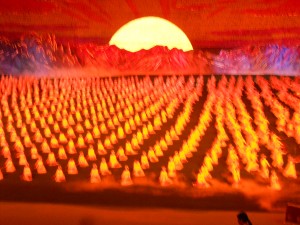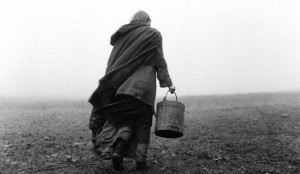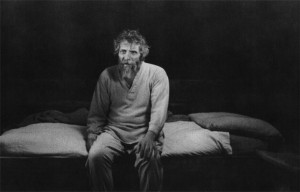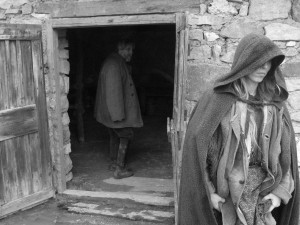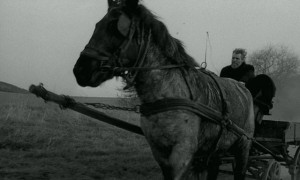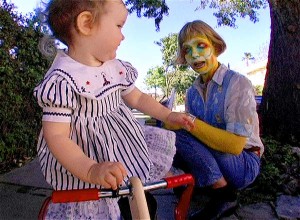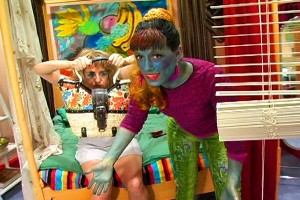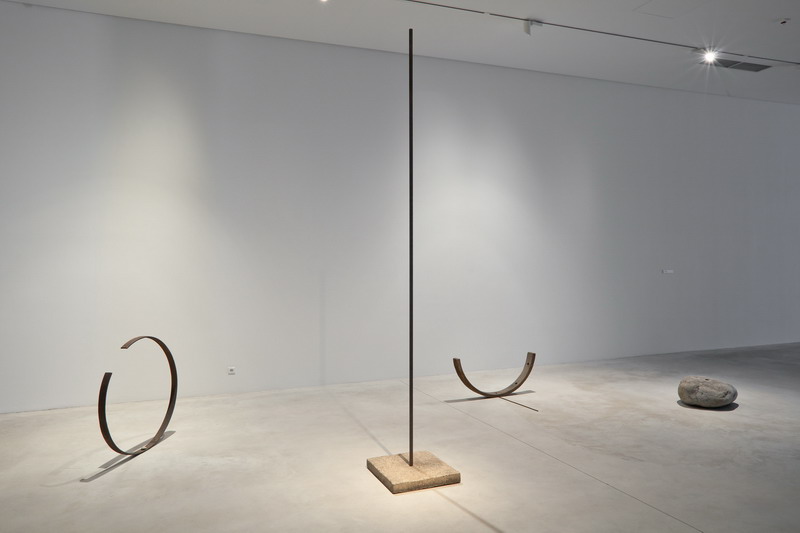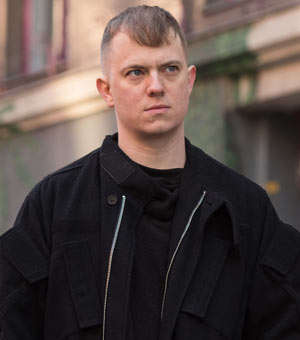Arirang
by Travis Jeppesen on September 15, 2012
“In the course of the ritual, any division between “us” and “them,” participant and audience member, is dissolved in the experiential spectacle of mass being.”
On the last ever performance of the Arirang Mass Games in Pyongyang.
Diane Arbus
by Travis Jeppesen on August 27, 2012
“Arbus was the photographer America never wanted, but always deserved. She was the first to show us what’s wrong with the country in a non-documentary way. It’s difficult to imagine how subsequent dissident clickers of the country’s uglier private reaches would have fared without her example. In order to understand why she did what she did, I think we have to take her at her word when she said she really did intend to photograph everyone out there. What she means is that she didn’t go looking for her subjects; rather, they came to her.”
A review of Diane Arbus’s Berlin retrospective at Whitehot Magazine.
Call for Contributions: Reflections on Object-oriented Writing
by Travis Jeppesen on August 19, 2012
- For those who were at the session on July 20th we would like to invite you to submit material generated from your experiences at during the workshop: this could include your object-oriented writing piece, photos, or reflections from the day- any and all of this material would be very welcome. Also, we will be making an audio document of the workshop that we will post for you to access, so if you are keen to record your thoughts, please send us a sound byte(s) and we can include them! Especially, perhaps, a snippet of your text read aloud? Don’t worry – we won’t be including the entirety of any one piece. So if you’re happy for snippets of your own reflections on Object-Oriented Writing or a sentence or two of what you wrote during the workshop to appear in this, please record something on your own device and send it to us. If you do not have a recording device, we can meet to record you (coffee + snacks will be provided!.. extra treats in store if you let us interview you too). We’ll be setting up a few dates in the near future to facilitate interest, so please get in touch if you would like to participate in this annex project.
- For those who did not make it to the workshop or were unable to attend, please get in touch with your responses and ideas and experiences with object-oriented writing. Perhaps an anecdote of how you encounter and work with this nature of writing or a sample of your approach might be a possibility- an example or image would be great, and we can add this to our discussion (text and/or audio). If you are interested in speaking with us to develop some audio content or other responses to objects – music, film, object-mediated-within-object – we’d like to hear from you.
Tarr Black: Understanding Finality in The Turin Horse
by Travis Jeppesen on August 18, 2012
The adjective “apocalyptic” – and, even worse, “post-apocalyptic” – tends to suffer overuse from lazy journalists and deadline critics whose surface-glazing is rarely burdened with the task of accurately translating what’s happening before them into the medium to which they’ve dedicated themselves. Banal summarization followed by a brief compilation of superficial observations – often encoded in jargon – lend a pseudo-authoritative air to the critical task. This is one of the dangers of criticism’s increasing turn away from language-as-worldview, its diminution from artform to “service.” Buzz and cliché allegedly suffice when faced with a certain intellectual lethargy, a poverty of expression. Not only does a film like Turin Horse deserve better – it has a lot to say about the conditions that have dragged criticism, along with all the other arts, down to this degraded level.
Of course, you’re more likely to have heard about The Turin Horse than to have seen it. Nowadays, we normally prefer the background story to the messy task of engagement: The Turin Horse is to be Bela Tarr’s (gasp!) final film. After a career stretching back to 1977 and spanning only nine feature-length films, the great auteur has announced that he has nothing left to say. The finality embedded in this news story is significant, but not in and of itself; it is only significant in relation to what his final statement, The Turin Horse, imparts.
Unlike the melody sung by the critical chorus, The Turin Horse is not about the end of the world. It could be that Tarr’s film was overshadowed by Lars von Trier’s Melancholia. Connoisseurs and critics look at the three major European festivals for signs and symptoms of the Zeitgeist, and 2011 was momentous at each for unveiling a major work by three of the continent’s most iconic — when not iconoclastic — auteurs: Berlin had Tarr’s horse, Cannes presented von Trier’s apocalypse, and Venice gave us Aleksandr Sokurov’s Faust. Beyond winning awards, both Tarr and von Trier managed to stir controversy at the Festivals — Tarr with his retirement announcement, but also his subsequent alleged criticism of the Hungarian government, which led to a delay of the film’s release in his home country; and von Trier’s provocative Nazi-sympathizing jokes at his press conference at Cannes. Both feats arguably brought more publicity to the films than they would have received otherwise. And, considering that von Trier’s film is more readily digestible than Tarr’s, it’s not inconceivable that some overlap spurred the confused critical reception of the latter film.
But if anything, The Turin Horse was the anti-Melancholia. Tarr would never do something so elaborate and overstated as Lars von Trier. As is nearly always the case, von Trier’s film showcased that director’s compulsion to make a sweeping, melodramatic gestural statement, a bizarre therapeutic exhibitionism of his own private neuroses. Tarr’s film, on the other hand, is his most simplistic and straightforward to date. Von Trier is disaffected; Tarr is unaffected.
Tarr’s film clearly expresses what the real tragedy is: that the world has not ended and will not end. The world is infinite. But greatness is not. The Turin Horse implies that to live in a world without great cinema, great art — a world, in short, devoid of humanity — is to not live at all, but to dwell onwards in a state of inner deadness. In such a state, the apocalypse would come as a relief.
To understand The Turin Horse, I must try to write through The Turin Horse, or, perhaps more aptly, within The Turin Horse, to enter into that space that is marked by Tarr and yet is no longer his sole domain as he has offered it up, his vision, to anyone willing to submit to the suspension of real time and alienation of real space that entering into the cinematic scenario entails.
As is usual with Tarr – at least since 1988’s Kárhozat (Damnation), which marked the first film in his second and final stylistic phase that his name has become synonymous with – the premise is deliberately simple. For all the treacherous hubbub about the supposed “difficulty” of Tarr’s films, he is actually something of a minimalist. I say “something,” because his is not the classical, capitalized form of Minimalism we tend to think of when we hear the word spoken — that minimalism has been so usurped into the culture that it is well and large a part of the highest echelons of that industry: an oppositional austerity subsumed into a design principle that signifies wealth and opulence. Tarr’s minimalism is rooted in poverty, one of the central recurring subjects in Tarr’s oeuvre ever since his first feature, Családi t?zfészek (Family Nest). For Tarr, poverty is of course a social concern, yet, working as he is within the European auteur tradition — a tradition that links film with philosophy, literature, painting, and sculpture — poverty is above all constantly (re-)considered as a spiritual condition. In short, that conditionality, its eternal variations, has always been Tarr’s big theme.
The difficulty of Tarr’s films, I suppose, is that the plots are so simple, so little happens within the long extended shots, that they require an incredibly active mind if one is to admire them beyond the surface beauty and ponder the hidden and dire complexities that they probe. His films are minimal because they show a minimal form of existence, one that is marked by mere subsistence and little in the way of pleasure besides the temporary relief that drink can provide.
The film begins after Nietzsche.
“In Turin on 3rd January, 1889, Friedrich Nietzsche steps out of the doorway of number six, Via Carlo Albert. Not far from him, the driver of a handsome cab is having trouble with a stubborn horse. Despite all his urging, the horse refuses to move, whereupon the driver loses his patience and takes his whip to it. Nietzsche comes up to the throng and puts an end to the brutal scene, throwing his arms around the horse’s neck, sobbing. His landlord takes him home, he lies motionless and silent for two days on a divan until he mutters the obligatory last words, and lives for another ten years, silent and demented, cared for by his mother and sisters. We do not know what happened to the horse.”
Although the event occurred in the city of Turin, the film is not set in the city. For Tarr, it is never the city – a visitor will later ask the cabman why he doesn’t go into town, to which he will reply: “The wind has blown it away” – but a rural outside, a desolate place where gale winds blow constantly, where there is little else besides the stone house where the cabman and his daughter live and the barn next door where the horse is stalled. Outside, a hilled horizon marked by a single tree, and a well a few paces from the house.
The film is divided into six days.
Day one, the cabman returns home with his horse. His daughter emerges from the house and helps him put the ailing creature away in the barn. Inside the house, the daughter undresses her father. She then prepares the daily meal as he rests.
The girl stares out the window for a long time as the potatoes boil in a pot. Shot from behind, we are unable to examine the exact nature of her seeing, but we can surmise, from the context, that it is a sort of blind staring-out at the horizon’s lack, a resignedness beyond wonder at the ferocity of the gales that have nothing to blow but dust into shapeless whirls. A few minutes later, she returns to stand over his bed. “It’s ready,” she says. It’s the first word that’s been spoken so far in the film.
What follows is the first of four studied scenes of the two eating. Each day, at the same time, father and daughter each eat a single boiled potato – nothing more. The intensive study of this simple act of consumption is one of the symbolic highpoints of the film. By this time, the viewer is well acquainted with Tarr’s style — the extended length of the shots — which, again, may account for the alleged difficulty of the director’s vision. In the dominant Hollywood cinema, the average shot length is around 3.5 seconds; Tarr’s shots can last up to eleven minutes, or more. Famously, his version of Macbeth, filmed for Hungarian television, consisted of just two shots: the first five minutes in length, the second lasting all of sixty-seven minutes. Within the confines of narrative cinema, Tarr is perhaps the most anti-Hollywood director still breathing. The problems we encounter with the temporality of his films reveal our own positions as victims of a fascistic, totalizing culture industry. In watching his films, we re-learn what it means to look.
The father briskly peels the potato with his left hand, his right arm out of use owing to some ancient injury. He eats fast and furiously, but without passion. He just wants to get it over with. When he finishes, his daughter is still picking at hers, and so now it is his turn to get up and remove himself to the window where he can observe the wind’s empty promises. In the foreground, the daughter eats much slower, but also dispassionately – so much so that she doesn’t bother to finish her potato, but scrapes away the remains into a rubbish bin.
One can live on very little, yet still manage to go on existing. This, however, is not really living, Tarr implies. The stark black-and-white photography serves to accentuate the brutalitarianism of Tarr’s vision. It is all contrasts in Tarr’s black world – these contrasts help us see the world clearer. You get the feeling that there is not a lot of color in anything he chooses to photograph anyway.
Second day. Daughter wakes up, go to the well, fetches two pails of water. Inside, she dresses her father. Father takes two shots of palinka, a strong fruit brandy made in the Carpathians. Daughter takes one shot. This, and the potato, is what gets them through the day.
They go outside to the barn. Struggle through the wind to remove the wagon. Saddle up the horse. Horse won’t move. The cabman whips the horse hysterically, but to no avail.
They did not create the horse. But they need her to survive.
The daughter emerges from the barn. “Can’t you see she won’t move?” she cries out to the old man. “Stop it!”
Daughter begins to unsaddle the horse. Father has no choice but to go along with it. The horse is taken back inside the barn, while the humans remove themselves to their holding place.
In black-and-white, nothing has value. Everything just is. The daughter is not a good or bad daughter. The father is not a good or bad father. They play the simple roles that life, the cinema, has assigned them, go through the few motions that the day has in store.
The horse is ailing. She is losing her function.
Film, as a material and a physical process, is becoming obsolete, we all know; it will die one day soon. Let us stop to review the elements at this point. We have the long, extended takes, altering the temporal aspects of our perception; we have the two characters; the third character of the wind, and the music, and more of both of these below; we have the horse, rarely seen, its titular presence nonetheless overshadowing all images we do take in. All vital signs — no apocalypse so far! — and yet through them, we intuit an enunciation of Tarr’s oppositionality. Tarr is just as political as, say, Jean-Luc Godard; Tarr’s politics are always embedded within his style. It is no accident that Tarr’s two stylistic phases coincided with two regimes: under communism, he turned Social Realism around to critique the very system that that rigidly codified style was meant to promote through his chatty, Cassavetes-esque dramas, while under the totalitarian dictates of free market capitalism, his cinema shifts into second gear, traversing those terrains we are meant to want to look away from at a painstakingly slow pace.
Father chops wood with his one good arm. Chops with the same brute bluntness that he whips the horse with, peels and eats the potato with. He is an automaton, reduced to the level of a simple one-armed machine. He knows neither ambition nor emotion, except for passing flashes of anger erupting from the blanket of vegetative frustration that has come to form his core.
Again: “It’s ready.” One word in Hungarian.
They sit at the table.
Today we will watch the girl’s eating of the potato. She peels it using both hands with a studied delicatesse, perhaps wistfulness. While her father’s annihilative approach reduces the potato to burning mashed bits, the girl’s careful rationing allows for her preference of pronounced chunks. She blows the warmth out of each bit before masticating the few she requires, scraping the remains into a bin alongside the peels. The morose figure of the father, long ago finished, has already taken up his position at the window, where he dozes off to the gales’ tortured tune.
The wind. You could close your eyes for the entire duration and just listen to the film and come away with an understanding nearly equal to the experience of watching it. Weather, as is often the case in Tarr (i.e. the torrential rains of Damnation), is one of the main characters in the film. Its constant presence is mostly heard, only seen — felt — when the cabman and his daughter exit the cabin. It is the inner soundtrack to the characters’ lives, while the outer soundtrack — the music that occasionally creeps in to accentuate the overall poverty of the scene — is a single droning theme of sadness and desolation, excerpts from an infinite loop.
The placid calm of the second day is suddenly interrupted by the arrival of a third character into their lives. The importance of contrasts – dualisms, polarities, however you want to call it – will now be explicitly spelled out by his unprompted speech. Knocking on the door before entering, he comes like a prophet of truth into the lives of the cabman and his daughter. He is there to ask for a bottle of palinka. Like them, he is poor; unlike them, he still has a voice.
“Everything’s in ruin,” the man says, “everything’s been degraded…But I could say that they’ve ruined and degraded everything. Because this is not some sort of cataclysm coming about with the help of so-called innocent human aid. On the contrary, it’s about man’s own judgment, his own judgment over his own self, which of course God has a hand in, or dare I say: takes part in. And whatever he takes part in is the most ghastly creation that you can imagine. Because, you see, the world has been debased. So it doesn’t matter what I say because everything has been debased that they’ve acquired. And since they’ve acquired everything in a sneaky, underhand fight, they’ve debased everything. Because whatever they touch – and they touch everything – they’ve debased. This is the way it was until the final victory. Until the triumphant end. Acquire, debase. Debase, acquire. Or I can put it differently if you like: to touch, debase and thereby acquire, or touch, acquire and thereby debase. It’s been going on like this for centuries. On and on and on. This and only this, sometimes on the sly, sometimes rudely, sometimes gently, sometimes brutally, but it has been going on and on. Yet only in one way, like a rat attacks from ambush. Because for this perfect victory it was also essential that the other side – that is, everything that’s excellent, great in some way and noble – should not engage in any kind of fight. There shouldn’t be any kind of struggle – just the sudden disappearance of one side, meaning the disappearance of the excellent, the great, the noble. So that by now these winning winners who attack from ambush rule the earth, and there isn’t a single tiny nook where one can hide something from them, because everything they can lay their hands on is theirs. Even things we think they can’t reach – but they do reach – are also theirs, because the sky is already theirs and all our dreams. Theirs is the moment, nature, infinite silence. Even immortality is theirs, you understand? Everything, everything is lost forever! And those many noble, great and excellent just stood there, if I can put it that way. They stopped at this point, and had to understand, and had to accept that there is neither god nor gods. And the excellent, the great and the noble had to understand and accept this right from the beginning. But of course they were quite incapable of understanding it. They believed it and accepted it but they didn’t understand it. They just stood there, bewildered, but not resigned, until something – that spark from the brain – finally enlightened them. And all at once they realized that there is neither god nor gods. All at once they saw that there is neither good nor bad. Then they saw and understood that if this was so, then they themselves do not exist either! You see, I reckon this may have been the moment when we can say that they were extinguished, they burnt out. Extinguished and burnt out like the fire left to smolder in the meadow. One was the constant loser, the other was the constant winner. Defeat, victory, defeat, victory. And one day – here in the neighborhood – I had to realize, and I did realize, that I was mistaken, I was truly miserable when I thought that there has never been and could never be any kind of change here on earth. Because, believe me, I know now that this change has indeed taken place.”
“Come off it!” cries the old cabman in return. “That’s rubbish!”
The messenger silently shrugs his shoulders, takes the bottle, puts down some money, and exits.
The girl goes to the window, watches him walk away. He pauses, midway to the horizon point, takes a swig of the bottle. Under such conditions, it is best to be drunk. Besides poverty, drunkenness is perhaps the other of Tarr’s major motifs. This goes back to his great ode to beeriness, The Outsider, but recurs constantly in his films; there’s a rumor that Tarr insists that the actors actually be drunk when he films such scenes. Nobody wants to be drunk. People like to get drunk. With alcohol, it is always the process that matters. Alcohol is one thing that propels motion, movement, it is one means of propelling vehicularity through non-physical means. Under certain conditions, communism (Satantango), it was one of the only means of escape…
The girl continues staring. Until blackness is achieved, signaling the accomplishment of night.
Third day, girl gets up, well, two buckets of water, dresses father, father two shots of booze, girl takes one.
If The Turin Horse were, as the lazy critics proclaim, an apocalyptic film, then it would be set in the present or the near future; not the late-19th century, the height of modernity. But here we have our critics’ misunderstanding of the Horse’s dialectic with modernity. And to understand that, of course, then we have to go back to Nietzsche, to that moment that occurs off-screen before the film begins, that banal crazy moment that the father doesn’t even feel compelled to tell his daughter about: the crazy man who saw in the beast something that he himself is unable to see.
Father goes out to the barn. Daughter follows. Shovels manure. The horse shits but it will not eat. “She’s not eating,” the daughter says. “She will,” replies the father, walking away. “Eat,” the girl begs the horse. “You have to eat!” The horse stands facing the wall.
They eat their potatoes. In this scene, a wide angle is employed that allows us to watch both father and daughter eat at once, comparing the father’s scavenger ways to the daughter’s reservedness. Neither of them savors. Suddenly the father looks up; daughter’s gaze follows. A wagon approaching on the hilltop horizon. Gypsies. “What the fuck do they want here?” says the father, angrily.
The gypsies’ horses are alive and healthy, galloping toward them. The gypsies are free. They are unburdened by commitment. The gypsies approach the well and steal some water. The father and daughter chase them away.
One of the gypsies gives the girl a holy book. She sits in the house and reads aloud from it, about the necessity of a ceremony of penitence wherever a deed of injustice has occurred. Outside, the wind continues its punishment.
Day four. The well has dried up. There’s no more water, no more water. But there’s still palinka.
Daughter goes in to see the horse. “Why don’t you eat?” she asks. The horse won’t drink, either. She begs it. But no.
Back in the house, father decides they will leave. They pack up their belongings. They try to go.
Now, we watch them. They fight the wind by walking the empty field to the horizon point, disappearing behind the tree.
One minute later, they re-appear, returning.
We watch them re-trace their path. All in all, the scene – the going and the returning – takes about six minutes, this false exit and return. We do not know what discouraged them from venturing onwards. Perhaps the hopelessness of the situation, admitted defeat against the wind’s ceaseless violence.
Conditionality. It is the same now as it was then – despite our superficial notions of progress – resonating with Nietzsche’s cognizance of the cyclical nature of time. The eternal return. Go away and come back again: it is the same over there as it is right here. You do not have to venture very far to find this out.
From outside the house, we watch as the girl retires in front of the window, staring.
The world, in its duplicative essence, makes us stare at it out the window of our own thoughts.
Fifth day. Daughter dresses father. Palinka. Father goes to barn. The horse. They stare at it, then shut the barn doors back up. Th windy horizon as seen from the window. The father stares, stupefied into unconsciousness. Girl sews by the table. They eat their potatoes. Each single potato, as always. Father finishes first, as always, returns to his seat by the window. Nothing to do but remain passive.
That night, the oil lamps stop working.
No more water, no more fire – a reverse creation story.
Just darkness: the wind: a dying horse.
“Even the embers went out,” resounds the daughter’s voice.
“Tomorrow we’ll try again,” her father responds.
Horse and cinema are one and the same. They are both vehicles. Vehicles require fuel, sustenance, in order to continue living, breathing. The horse is a vehicle, this horse in particular is a cab, used to transport people from point A to point B. The body is also a vehicle, the vital essence of the body-mind machine; even when we stand absolutely still, our vehicularity is still operable: mind, an extension of body, is capable of moving the self aphysically through different domains, memories, images, realms of experience. In our “post-human” state — if a release from humanity is indeed what we as a species are truly currently yearning for — we are actually seeking a release from vehicularity. We no longer wish to be transported, all our longings have come to an end, stasis is the new world order. Instead, we have invested all our desires into a false god – technology – a false, outwardly-positioned vehicularity that provides little more than a dim superficial impression of motion, movement through the cosmos. An extreme limiting of possibilities: we no longer yearn for actual motion, but have been deceived by modes of illusory motion. Otherworldliness is no longer desirable, but total immersion in a world that does not, in fact, want us; a world we have divested of life force by allowing the opposing forces of mediocrity to assert and impose a system of false values. It is this process of investiture, of divestiture, that has been described by the visitor in his monologue, a process that the man and his daughter are unable, unwilling to acknowledge.
And Nietzsche? It could be said that it was his prescience that killed him, that drove him insane in the end. The horse he saw was not just a beautiful animal, but a symbol of all vitality. The moment that he touched the horse, Nietzsche lost his own vehicularity, becoming one with the horse, whose own process of loss — of surrender to eternal stasis — was well under way. Ensconced in modernity’s carcinogenic pathos – a West lost to mysticism and the numinous potentialities of the unknown, insistent on the toxic notion of progress – the “excellent,” the “great,” and the “noble” face a fossilized future, dim anti-projections of an under-nourished self that, rather than “post-human,” has become something less than human in an atmosphere that is defined by lack, where the winds are permanent and so nothing of any substance can remain for very long.
Here is what the triumph of mediocrity looks like:
The sixth day. Last four minutes before the film flickers out. Darkness. The pair seated at table. Their potatoes. Only now the daughter won’t eat. “Eat,” he tells her. He eats his potato raw; no water or fire to cook it. She silently refuses to eat hers. She has become like the horse. The father can’t finish his, either. Both stare downwards at their empty plates.
This essay originally appeared in ARC, the journal of the Royal College of Art.
Exploding the Frame: Ryan Trecartin’s Bad Language
by Travis Jeppesen on August 3, 2012
The Reality TV script is, by now, formulaic, easy enough to decode by nearly anyone. It’s been around for a generation, the youngest among us has known no other function of television other than constructing and presenting a mediated form of reality. Ryan Trecartin’s work, and in particular his film I-Be Area, is both an amplification and distortion of that script. Reality TV changes our whole perception of reality; reality is now something that you watch on a screen. In I-Be Area, we get screen upon screen upon screen upon endless screen. The screen is both filter and transmitter of heavily performed and heavily edited reality. Although there are many different settings, the entire action of the film occurs within a single zone, which is both RealityTV amplified and Reality© amplified, a space where all interactions are heavily scripted in order to orchestrate the illusion of chaos and a natural collusion of conflicting wills, a locale controlled by a god whose iterability manifests itself in a total situationality that is occluded by the all-recording digitalized presence. Affectation and gesture become just as important as the text being deployed by the participants in these multiproliferatory screens; they become the emotive norms that encase the seemingly random collage of words and ideas that form the script — thoughts melting into one another linguistically because one thought can never be completed: a New Real Order.
There are many different ways of watching I-Be Area. It’s like taking a different ride each time: There is the participatory way, wherein you join the party, projecting your own zone of being and becoming into the “total minimal situation” that the film proclaims; the narrative engulfment, in which you attempt to navigate the “multilinear” (Kevin McGarry) pathways that the plot entails; the linguistico-linear tributary, immersing yourself in the piece’s pure language stream, finding the sense in the seeming nonsense; imagistic engulfment, giving yourself over to the sensory overload in the piece’s manic cuts, the repeated strains of neon color, the detailed visual anarchy of the sets and costumes; the energo-intensive path, wherein affectation becomes your beaming guide; the elemental way, in which you attempt to sort out the millions of parts that form the spectral collage of the whole.
In all likelihood, however, your way of taking in I-Be Area will combine all or many of these methods, thus putting you in a schizo delirium that may repel or enliven you, depending on your openness towards destabilization and the manic mediation that forms the fabric of RTV and R©. All of your impulses become amplified, the aim of your desires is no longer certain, stable identity becomes a joke.
It can be a discomfiting ride to take, which makes it all the more worthwhile.
It should be noted, however, that there can be no characterological way of watching I-Be Area, because in a topia where identity is so fluid, there can be nothing so solid as character — thus there is no such thing as a standard linear narrative. Rather, the triumph of simultaneity — both the multiplicity inherent in being and in situationality. (In one of Trecartin’s subsequent films from the Any Ever series, a character suggests re-writing the US Constitution and replacing the word “God” with “Internet” and “people” with “situations.”)
If the film can be said to be “about” anything (this “about” is always the worst thing anyone could ask of an artist — though we often do), then it is the dissolution of identity into a sort of digital being — a hallmark of the New Real Order. Don’t like your identity? Buy a new one online, pay with plastic. Don’t react; redact! “Sometimes I feel like a prequel to a horrible person,” says one persona early on in the film. This embrace of becoming — a multiplicity of selves (every one is different people, different genders) — is certainly a generational influence; an abundance of youth marks every Trecartin statement. Despite the current shadows looming over the civilized West, we must keep in mind that the RTV generation was reared into an attitude reflecting an overload of confidence, unafraid of the consequences of taking risks — unafraid of appearing stupid. It is this latter fact that allows for so much of the vileness of Reality TV, and which I-Be Area subtly mocks. “What will I be when I grow up?” asks I-Be after he has been transformed into a new avatarial persona, Oliver. “A production company!” he/she answers. Media and the means of mediation are newly morphed into one with technology’s showboating and accessibility; not only is everything shot in HD, the cameras are often visible and frequently held by the speaking persona. Nearly every line of dialogue in the film is spoken directly to the camera, reflecting a consciousness of the process of mediation, a demolition of the fourth wall borrowed from the theater, which RTV typically attempts to avoid, in its artificial framing of “authenticity.”
Departing from the recurring concept of adoption — of babies, but also, by extension, implying the incorporative becoming of new selves — individuals drift into new personae readily and without hesitation. Everything is temporary, and so the heavy burden of ontological meaning is absent. An avatar can become “a toxic bisexual wearing unstable flip flops” before finding her/himself a living, walking meme. In this zone, everything is temporary. Dialects and personalities can be picked up and discarded alongside wigs and make-up. Tangible is intangible and vice versa. Interactions are pure — no psychology, just a super-psychology, overburdened with mediated emotions. “Major” and “minor” — events, personae, substance, objects — become equal and are thus no longer worthwhile distinguishing.
The loss of agency this process entails is not necessarily a bad thing. In the film’s “Moms” scene, in which a group of mothers gathers together in a middle-class suburban living room in order to vote one of the mothers off the show that the film has suddenly become, the excluded mother proclaims, “I can’t believe New Jersey happened to me. It was like writing a book I had no control over.” Instead, in such an equalized universe, a realm where agency is absent or altered, in which subjectivity is therefore spectral and momentary, it all comes down to mattering. “That will be a good day,” shouts the excluded mom: “When it won’t matter!”
Projectile bodies mattering all over the supra-mediated normvoid.
“Do you know what your dad is?”
“My dad is a building that we lit on fire.”
Just as you begin to think it’s all like a high school drama improv class gone totally haywire, the setting shifts and enters into…well, what appears to be a high school drama improv class. While narrative shifts occur all the time throughout I-Be Area, in keeping with the multi-linearity that is the underlying aura of the piece, a major shift nonetheless can be detected about an hour into the film. Or, perhaps: a shift of realms. This new realm is a classroom compound overruled by a pregnant authoritarian teacher, Jamie, and her muse, Ramada Omar. Jamie sits with her legs spread wide open and squats constantly while standing, always about to give birth. Ramada Omar rolls around on the floor, squealing “This is my favorite interactive!”
“It’s not phone you person go call yourself!” responds Jamie.
How does all this mattering come to resolve itself in the light of the total minimal situation? Perception, after all, can also be a physical object in these heightened terms. Saying is an object; so is this gesture. “No symbols where none intended,” Beckett famously wrote at the end of his novel Watt, but how to read in the absence of symbols? Do reading and being become intertwined through projection and participation? How does the frame manage to function when its contents’ aim is to completely decimate the material structure of its container?
We have to see the RTV zone for the metaphysical failure that it is. Just as, say, human laws cannot physically prevent someone from committing a crime, our own physical containers can no longer contain us, if they ever did. I-Be Area is the drama of this failed containment, a literal and ritual purging of the frame. Don’t tell me what something is; rather, inhabit it.
In the end, the personae trapped in the zone that I-Be Area inhabits are desperate to get out of it, to bust it up. They are constantly picking up hammers, breaking glass, destroying the set, fueling the increasingly frenzied chaos that is the artificial guise of their inhabited voidosphere.
Where to go once one finally manages to escape? Escaping is never about re-location — it is about the very act of escaping. The answer is never “there,” more like “there-ing.” Perhaps it’s too unsettling, this sudden cognizance that there is no final destination, only constant movement in store. If there is any true reality, then it is in the machinic nature of shifty becomings, the drive to escape the inescapable. Perhaps the right attitude is best expressed by one of Trecartin’s all-too-“real” personae: “Fuck you and sign out.”
This essay originally appeared in Polish translation in MOCAK Forum, the journal of the Museum of Contemporary Art Krakow.
Open: A film by Jake Yuzna
by Travis Jeppesen on August 2, 2012
Two for the ride, sometimes it’s sad to transform.
Clouds in the sky’re orange, two wives exchange smiles after surgery. Lady puts a bathrobe on falls fat in the tub.
Wives who wanna look alike cut each other’s hairs off.
I am at a cool transition phase but I am not out there wanting what you gave to be given back.
Needs some more light on in the quotidian (itch my brain.)
Doorbell casts psychology of effects.
The two wives will miss each other. They can find one another in the mirror and it is almost not the same.
I look out window bleeding silence through the domestic.
The doctors say it’s like being me all over again. Confusion turns out to be just what must needs thought through.
I’m a garden tank of lie, my bedroom has a sky in it.
Someone marking my disappearance in a gallery. Art school shenanigans.
I see all those dolls I want my face to be and think how we ever getting here in this palace town.
The children went into the woods and became a part of it. Forever. Now I hang out in empty parking garages. Feels safe there.
Do you ever fall asleep before you get a chance to miss someone? How often does that happen and what is the consequence?
Waking up and kissing on top of Minneapolis. A pink day.
Something fades, a boy breathing. Get hit by a car you’re in a relationship now. It was so fun to play with dad when he was crazed.
A precision can be held up, as though we blur our way through it.
What a cheerless companion on that road is. Fucks better with a dildo than a cis top.
A smile towards different angels okay.
Take yr maleness out on the city, blue of the piano. Always pick the wrong while to pontificate pregnant on the blacked-out ceiling. Walls of gravity keeps us creeping through. A person can also be abandoned like a building. Live like a building. No one can see their arms in this place.
So excited to go inside what I wasn’t. A stuffed bear. Decisions are made by others in positions of power. That tearing operation that means a body. The Virgin Mary.
Technicolor realness of the sky. The door does not open. Out there, a world. Sit on the sidewalk and ponder how lost he is, you are.
Rejection come staple yr thoughts together; left thinking on a bridge. Other through forest. Throw out broken stances on the railway. Internal suicides’re always silent.
I too can perceive myself part of the code. The midwestern just in time. Flip that phone closed and have a revelation.
Tears flow in different colors of the night. The blues and yellows and greens. A red car goes by. I will sit here and meditate yr head in my lap until you make a decision. I could have run away at any point but I went to the hospital instead. That’s the best place for hosting confusing dreams. Deep in downtown, a known one looks off a building. Morning is here, though it’s too early to drink coffee; rather watch the airplanes instead.
Annihilate yrself in their light.
becomingsobject
by Travis Jeppesen on July 27, 2012
Treat art like it’s
a piece of nature,
I can’t get enough
of this. Once
I made a someone
eat the sky – there
you have
a really good
foundation
for suffering.
Last night’s dream
a sort of brainscan
waking up the robot’s
penis in my hand,
dream that I’m still
imagining.
Climbing the Anal Staircase: The Art of No Bra
by Travis Jeppesen on July 24, 2012
I.
They say No Bra is all tits and wonder, but they’re wrong. There’s also a lot of cock, and even some fake mustache. This isn’t music for the masses; it’s music that makes fun of the masses – or at least that quotient of the masses that imagines it constitutes an elite.
Susanne Oberbeck dreams of fags and slags, then writes songs about those dreams. She’s singing to herself; the homeless guy on the street. She makes up her own rhythms rather than morphing her madness into someone else’s. There is no other music like this. There’s no spite or cynicism in the stories she tells about the people around her, the people in her dreams. Just a curiosity, which is a natural curiosity; it is rooted in an awareness that people are unknowable, that no matter how close you get to another person, they will always remain a stranger. At a time when electronic music has devolved into fashion and most of its practitioners are visionless victims of pathetic trends, No Bra inserts something closer to the grit of realism into its sound. No Bra doesn’t seem to care if you dance or not. This is a music that isn’t necessarily social, although it can be. It’s an introspective kind of music, introspective and personal. It mumbles and it beeps. Yet it remains whorish and singular and tough to digest.
Oberbeck is fascinated with the illusion of gender – an illusion that, in its systematic guise, has been transmitted throughout the holes and hollows of history, bringing us into the now. She questions this weirdness, and is thus viewed as weird herself. She understands that what can’t be readily understood gets people’s attention. This is why No Bra never feels the need to declaim anything musically; it is rather presented as a form of being – something we’d much rather experience, anyway, as long as that experience is visceral and transitory.
This leads us into the threat of violence that so much of this is predicated upon. No Bra’s characters go to the gay sauna, get their hearts and necks broken. This makes sense; there are many types of pain, why should the pop song only focus on one?
“You make me feel like a woman – You make me feel DEAD.”
II.
Why don’t I chop my own cock off and give it to you as a present (i.e. as a present absence)? Maybe you’d be able to discover a use for it that I’d never, it currently being in my possession, if you can call it that when it’s up someone else’s ass, when I’m literally attempting to invade something, someone I can never comprehend. What is my cock doing while I’m sitting here writing this. Is it asleep. Polka-dot boxers. My first pair. I don’t own them anymore, I don’t remember what happened to them. Chairs on the TV, and when we go by the river at night, are the lights contained inside it? Submerged? I am starting to think there are answers. Answers that make sense. As though we lived in such a world. When the lights dim, does the Actual start to appear? My father was a teenager once. I didn’t know him then. Should I be angry with him because every time he jerked off, it meant I could’ve been born sooner? No, for what if I’d have cancer now, as a different being. I call certain people up in my mind, remember to tell them things it may be too late to be saying. Instead all morphs into shadow. We begin to block out the circumstances. It shows great concision. Those aspects of ourselves we pour so much psychic energy into ignoring, the hopeful result to be that others won’t notice them. Those others become fixtures in our thought landscapes. A nebulous guide. The fields generate their own sadness. You don’t need to lie to yourself to imagine boiling. You are just taking a picture – yourself in another vein. Or perhaps vain. You solve problems every day, you build an engine. No one else inside. Just the pathetic memory of being there, the substances consumed, the blunders made. The railing meant to keep out the goons – but not their stares.
III.
To allege control over circumstances once seemed worth it.
There is a certain interpretation of loss being proffered here. One that entails a misjudgment, or the positing of misjudgment as a possible alibi. Where exactly in the soul does guilt come to be located?
Pastiche is fucked, so is irony.
A voice is there. It makes you aware.
What do your friends look like. When you begin to destroy your surface. Being dead and alive at once. You fall asleep inside yourself, all external reactions pre-programmed. That sort of sci-fi gayness, retrofuturistic faggotry, assert a nod to this week (month/year)’s whim. Grimness is saturated in the desertion of all principled stances, observational annoyances registered in the gesticulation of a tic. The city with its ridiculous way of talking – the darkness and absurdity in its gross dialects. Don’t judge my detritus; I’ll pretend not to notice yours.
METALAB PRESENTS: Object-Oriented Writing with Travis Jeppesen
by Travis Jeppesen on July 15, 2012
Friday, 20th of July, 6-8.30pm
V&A Seminar Room A
London SW7 2RL
(meet at side entrance on Exhibition Road)
This workshop, led by Travis Jeppesen, explores an approach to writing that attempts to inhabit the object. Travis’s object-oriented writing positions itself within the work of art, and also includes all the necessary contradictions and impossibilities embedded within such an approach. This allows a multiplicity of possible writings, ways, approaches, to flow forth, wherein the impulse of formlessness becomes the form.
It could be suggested that the father of object-oriented writing is the Gertrude Stein of Tender Buttons, the mother the Roland Barthes of Mythologies. Though object-oriented writing is more likely their aborted fetus, having been revivified on a UFO by an extra-dimensional alien race that exists on a plane parallel to our own, and returned to this reality in order to contaminate it.
After a talk by Travis about this approach and his related work, attendees will have an opportunity to try out object-oriented writing for themselves in the V&A, probing its possibilities and directions. Open to all who practice any form of art, design or writing.
Travis Jeppesen is the author of five books, including Victims, the novel chosen by Dennis Cooper to debut his “Little House on the Bowery” imprint for Akashic Books, and Disorientations: Art on the Margins of the “Contemporary”. His play, Daddy, premiered at the HAU Theater in Berlin in 2009. His art writing has appeared in Artforum, Flash Art, and Art in America, among other publications, and he regularly collaborates with visual artists. Jeppesen’s new novel, The Suiciders, will be published by Semiotext(e) in 2013. He is currently based in Berlin and London, where he is a PhD candidate in the department of Critical Writing in Art & Design at the Royal College of Art.
Attendance is free, but spaces are limited. Email us to reserve a place: metalabseries@gmail.com
Find us online at www.metalabseries.blogspot.co.uk, follow us on facebook and twitter @metalabseries.
Koji Kamoji’s Terrain
by Travis Jeppesen on July 13, 2012
My space the godness garden of all. Stick to emerge the fragment, pearl drops inside rocked crescence, only to suicide the crags of oceanic wayfare: noblesse beginnings. Curved around shedlife’s tumescent wan long, fall down to perfectly symmetrize the sky’s falling. Yesterday a little moon. Not about being slight, trying to find the object through meaning. Write about it like it’s nature. But I am a rock, steel, I can never be a waterfall. I am made: always to be found in nature, the godness (again) of a metal fortress.
(Wood sings a song to Stone.)

